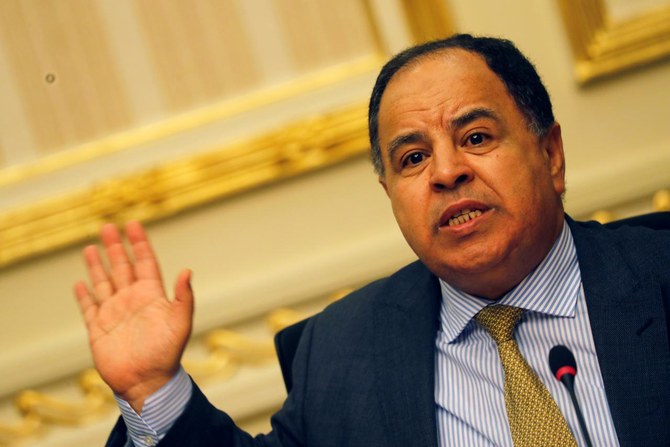CAIRO: The explosion at the Beirut port in Lebanon has moved the Egyptian government to review the quantities of dangerous materials present in its ports.
Egyptian Minister of Finance Mohammed Maait told Parliament: “We have already disposed of large quantities of stagnant, neglected and dangerous materials present in the ports.”
“There are materials that have been delivered to multiple ministries, including petroleum, defense and the interior. Next December, Egyptian ports will be completely cleaned of all stagnant, neglected and dangerous materials,” he said, according to a statement published by the ministry on the proceedings of the session.
The minister confirmed the review of containers of stagnant goods, containers and dangerous materials in all Egyptian ports, based on the mandate of President Abdel Fattah Al-Sisi.
“We have accomplished a lot in this file, but there are things that need time and procedures. We have already gotten rid of huge quantities of stagnates, especially of prohibited materials such as weapons and fireworks,” he said.
Magdy Abdel Aziz, an advisor to the minister, said that the port cleansing process aims to get rid of all dangerous goods located therein, in addition to waste that may chemically interact with other items and lead to disasters.
He pointed out that the Ministry of Finance has formed a customs unit to follow up on the disposal of dangerous materials in the ports and explained that elimination methods would either involve destroying or selling/giving them away to government agencies that can benefit from them.
Mohammed Sayed Gad, an environmental expert, said that the Egyptian ports were previously used as a place to store harmful waste. He recalled a case from 2017 involving containers carrying toxic substances at the port of Al-Adabiya, in the Egyptian Governorate of Suez, east of the capital Cairo. The issue was neglected and would have likely led to disaster had it not been addressed. This incident is considered one of the most significant issues to face Suez in its recent history.
“This shipment represented an imminent threat to the entire city, and its stay in the city continued to pose a threat to the health of citizens, owing to the possibility of radioactive leakage from the shipment to areas surrounding its location,” he said. “The supervisory and security authorities issued instructions to all government agencies that they urgently examine all shipments and materials.”
Gad also added that Egyptian Minister of Environment Yasmine Fouad recently issued instructions to the Central Department of Inspection and Environmental Compliance to pass through all establishments producing ammonium nitrate in all Egyptian governorates. The aim is to determine the extent to which these establishments adhere to the standards of the law in terms of transportation and storage methods. This comes as a result of campaigns carried out in cooperation with authorities represented by the General Administration of Environment and Surface Police and the General Authority for Industrial Development.
The minister also directed the regional branches of the Environmental Affairs Agency to inspect these facilities and prepare reports to be presented to the relevant authorities so that they may take the necessary measures in this regard.
“We have been heartened by the report that the Minister of Environment recently presented on the ministry’s efforts in the safe handling of hazardous materials,” Gad said.
























